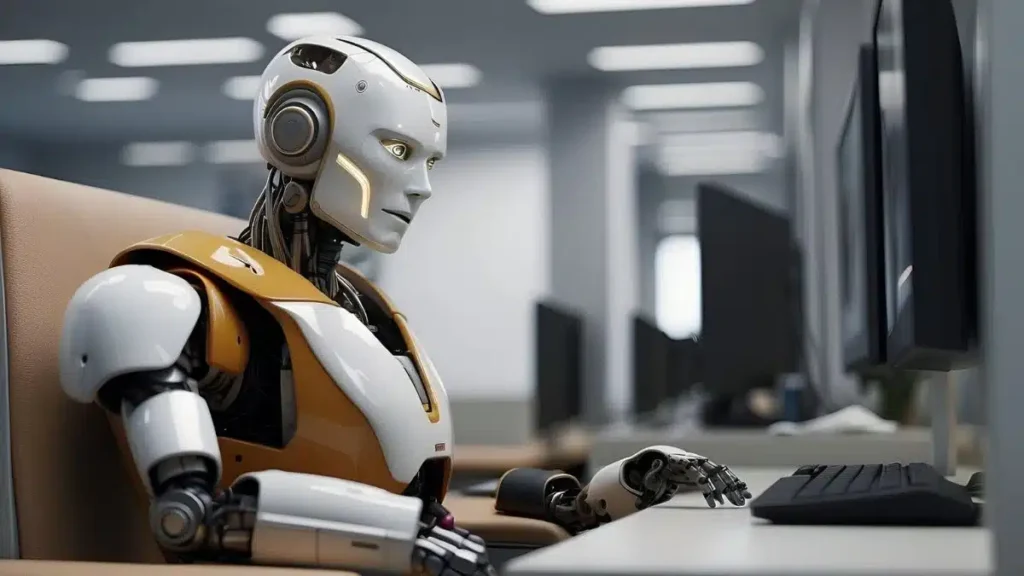In July 2023, Suumit Shah, the CEO of Indian e-commerce platform Dukaan, made a radical decision that shook the global tech community he replaced 90% of his customer service team with AI powered chatbots. At the time, his move sparked outrage and fascination in equal measure. Now, a year later, Shah has publicly shared the results of this bold transition, offering a rare, unfiltered look into what happens when human roles are surrendered to artificial intelligence.
Why the Bold Decision?
Before jumping to conclusions, it’s crucial to understand the context behind Suumit Shah’s controversial move. Dukaan, a startup aiming to simplify digital store creation for small businesses in India, was facing scaling challenges. Long customer wait times, high payroll costs, and operational inefficiencies were threatening the company’s growth. Shah believed the solution lay in automation.
We were spending over ₹1.5 crore annually on customer support Shah said in an X (formerly Twitter) thread. With AI, we cut that cost by 85% while reducing response time from minutes to seconds.
His focus was not just cost saving but also operational efficiency. The AI system he introduced could handle 1,000+ queries simultaneously, learn from user interactions, and offer 24/7 assistance features that even the best human agents couldn’t consistently match.
Dukaan’s AI Transition
The AI replaces staff strategy didn’t come without its struggles. Initially, customers reported dissatisfaction, especially when dealing with complex or emotional issues. To address this, Dukaan integrated human escalation protocols and trained the AI using data from past support tickets and real life conversations.
Within six months, customer satisfaction scores stabilized and even improved in some segments. Resolution time was reduced by 75%, and according to internal reports, the chatbot handled 98.3% of queries without human intervention.
Results in Numbers
Cost Reduction: 85% drop in support expenditure
Speed: Response time dropped from 2 minutes to 3 seconds
Coverage: 24/7 global support in multiple languages
Resolution Accuracy: 98.3%
These figures paint a promising picture of what the AI replaces staff model can achieve when implemented with careful design and continuous iteration.
Efficiency vs Empathy
Experts, however, urge caution. Dr. Ananya Rao, an AI ethics researcher at the Indian Institute of Technology, Efficiency gains are undeniable, but empathy is irreplaceable. An AI can resolve a query but not a complaint fueled by frustration or confusion.
A Harvard Business Review report in 2024 highlighted a similar concern, stating that while AI excels at handling repetitive tasks, customers still rate human interaction as more trustworthy and emotionally satisfying.
Shah himself admits this limitation and argues for a hybrid future. AI will not replace all human jobs, he tweeted. It will replace those jobs that don’t evolve.
The Human Side Layoffs and Learning
The decision came with significant human cost. Over 230 customer support staff were let go. While Shah faced backlash for the abrupt layoffs, he defended the move by citing sustainability.
Interestingly, some of the laid off employees pivoted into new roles. Meena Kumari, a former support executive at Dukaan, shared her story in a LinkedIn post. It was a shock. But I took it as an opportunity. I reskilled in UI/UX design and now work with a startup in Bengaluru. It was hard, but I’ve grown.
Dukaan also offered severance and free reskilling resources to affected staff, a move that helped soften the blow to their reputation.
The Broader Impact and Future of Work
The AI replaces staff approach has inspired many startups to re-evaluate their staffing models. Companies in fintech, edtech, and healthcare are already exploring similar transitions. However, the long term effects remain unclear.
Will AI cause widespread unemployment, or will it push the workforce to evolve and reskill faster than ever before? That question remains at the heart of the global AI debate.
The future is not about man versus machine. It’s about man with machine says Chris Herd, remote work advocate and founder of Firstbase.
Lessons From Dukaan
One year after Suumit Shah made headlines, Dukaan’s case offers more than just numbers it delivers insights into the changing nature of work. The AI replaces staff trend isn’t going away, but it doesn’t have to be dystopian. When paired with ethical leadership, smart implementation, and a human centered fallback, AI can empower businesses and workers alike.
Suumit Shah’s gamble paid off at least for now. His story is a case study for what happens when vision meets execution in an era defined by intelligent machines.

